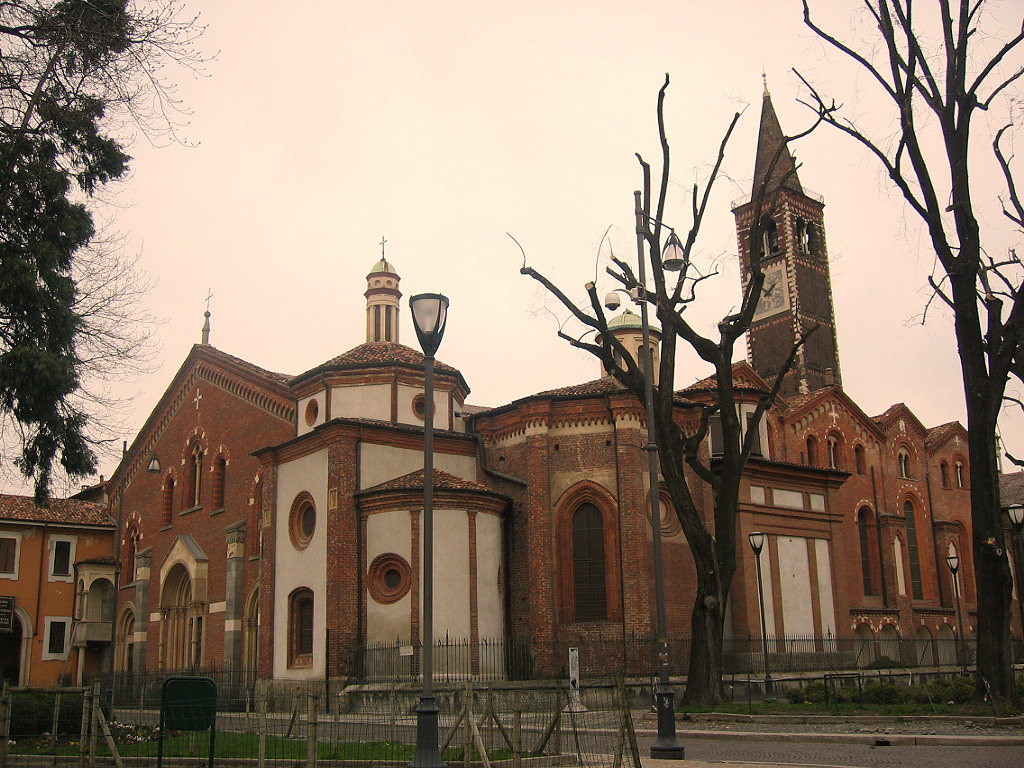|
Eustorgius Of Nicosia
{{disambig ...
Eustorgius or Eustorge can refer to: *Eustorgius I, bishop of Milan from 344 to 350 *Eustorgius II, bishop of Milan from 512 to 518 *Eustorge de Scorailles, bishop of Limoges from 1106 until 1137 *Eustorgius of Nicomedia, father of Saint Pantaleon *Eustorgius of Montaigu, archbishop of Nicosia in the 13th century See also *Basilica of Sant'Eustorgio The Basilica of Sant'Eustorgio is a church in Milan in northern Italy, which is in the Basilicas Park city park. It was for many years an important stop for pilgrims on their journey to Rome or to the Holy Land, because it was said to contain the ... [...More Info...] [...Related Items...] OR: [Wikipedia] [Google] [Baidu] |
Eustorgius I
Eustorgius I ( it, Eustorgio) was bishop of Milan from 343 to about 349. He is honoured as a Saint in both the Catholic Church and the Eastern Orthodox Church. His feast day is on the September 18. Life According to the tradition, Eustorgius was a noble Greek. He was the legate of Milan and he was elected as bishop at the death of Protasius in 343. Eustorgius traveled to Constantinople to have his election as bishop confirmed by the Emperor, and in that occasion Emperor donated to him the relics of the Three Magi which he translated from Constantinople to Milan. From 345 to 346 and from 347 to 348, he held two synods. He also began construction of churches and basilicas in Milan. Saint Athanasius called him a "defender of the faith" and mentions him as an opponent of Arianism. Saint Ambrose called him by the honorable title of "confessor", and just in such a way some verses concerning Milan in ca. 700. His name was included in the Ambrosian Rite and his cult in Milan is testif ... [...More Info...] [...Related Items...] OR: [Wikipedia] [Google] [Baidu] |
Eustorgius II
Eustorgius II ( it, Eustorgio) was Archbishop of Milan from c. 511 to 518. He is honoured as a saint in the Catholic Church and his feast day is June 6. Life We have two letters of king Theodoric the Great concerning Eustorgius: the first, addressed to the count and senator Adilas, urges Eustorgius to take under his protection the estates owned by the Church of Milan in Sicily, and the second, directly addressed to Eustorgius, asks the bishop to restore the bishop of Aosta who had been unjustly accused by some clergy of treason. Eustorgius was also asked to judge the slanderers. In an own letter, Avitus of Vienne (died 518) thanks Eustorgius for the financial support given in order to free some Italian prisoners who were captured by the Arian Burgundians. According to the bishop of Pavia Ennodius (died 521), Eustorgius restored the water ducts of the Baptistery of Santo Stefano, which ruins are still visible under the Cathedral of Milan. Eustorgius died on 6 June 518. His r ... [...More Info...] [...Related Items...] OR: [Wikipedia] [Google] [Baidu] |
Eustorge De Scorailles
Eustorge de Scorailles ( la, Eustorgius) was the bishop of Limoges from 1106 until his death in 1137. He belonged to the local nobility, and was chosen by the cathedral chapter in an election free of outside interference. Eustorge commissioned the poet Gregory Bechada to write the ''Canso d'Antioca'', a lengthy Occitan poem recounting the First Crusade. This work, relying in part on eyewitness testimony, took twelve years to complete. Following the disputed Papal election of 1130, Eustorge, a supporter of Innocent II, was expelled from his see by Duke William IX of Aquitaine, who supported Anacletus II. By 1135, Abbot Bernard of Clairvaux had successfully convinced Duke William of Innocent's legitimacy and Eustorge was able to resume his episcopate unimpeded. Eustorge was succeeded by his nephew, Gérard du Cher (died 1177). See also *Catholic Church in France , native_name_lang = fr , image = 060806-France-Paris-Notre Dame.jpg , imagewidth = 200p ... [...More Info...] [...Related Items...] OR: [Wikipedia] [Google] [Baidu] |
Saint Pantaleon
Saint Pantaleon ( el, Παντελεήμων, russian: Пантелеи́мон, translit=Panteleímon; "all-compassionate"), counted in the West among the late-medieval Fourteen Holy Helpers and in the East as one of the Holy Unmercenary Healers, was a martyr of Nicomedia in Bithynia during the Diocletianic Persecution of 305 AD. Though there is evidence to suggest that a martyr named Pantaleon existed, some consider the stories of his life and death to be purely legendary. Life of Pantaleon According to the martyrologies, Pantaleon was the son of a rich pagan, Eustorgius of Nicomedia, and had been instructed in Christianity by his Christian mother, Saint Eubula; however, after her death he fell away from the Christian church, while he studied medicine with a renowned physician Euphrosinos; under the patronage of Euphrosinos he became physician to the emperor, Galerius. He was won back to Christianity by Saint Hermolaus (characterized as a bishop of the church at Nicomedi ... [...More Info...] [...Related Items...] OR: [Wikipedia] [Google] [Baidu] |
Archbishop Of Nicosia
The Latin Catholic archdiocese of Nicosia was created during the Crusades, Crusades (1095-1487) in Cyprus; later becoming titular. According to the ''Catholic Encyclopedia'' 31 Latin archbishops served beginning in 1196, shortly after the conquest of Cyprus by Richard I of England, to 1502. List of archbishops Resident *1196–1202 Alan (archbishop of Nicosia), Alan *1206–1210/11 Thierry (archbishop of Nicosia), Thierry *1211 Durand *1217–1250 Eustorge de Montaigu *1251–1261 Ugo di Fagiano *1262 Giovanni Colonna *1267 Giles *1268 Jean d'Angoulême *1270–1273 Bertrand Bernardi *1278–1286 Ranulf (archbishop of Nicosia), Ranulf *1280s Raphael *1288–1296 John of Ancona *1296–1303 Gérard de Langres :''1303–? Henri de Gibelet (apostolic administrator)'' :''1306–? Tommaso de Muro (apostolic administrator)'' :''1308–? Pierre Erlant (apostolic administrator)'' :''1311–? Pierre de Brie (apostolic administrator)'' *1312-1332 Giovanni Conti (died 1332), Giovanni Conti *13 ... [...More Info...] [...Related Items...] OR: [Wikipedia] [Google] [Baidu] |

_by_shakko.jpg)
